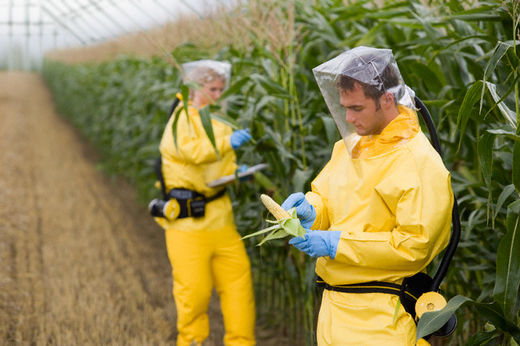APHIS har fejlet i at yde et rettidigt afgørende svar på mindst 29 af CFSs FOIA forespørgsler eller klager. Af disse har APHIS fuldstændigt fejlet med at yde et afgørende svar til 10 forespørgsler og 2 klager. as entirely failed to provide a final response to 10 requests and 2 appeals. Sagsanlægget spørger retten om at få APHIS til at prompt at tilvejebringe CFS med den forespurgte information og til at beordre APHIS til at stoppe deres praksis med at ikke at svare på FOIS forespørgsler relaterende til GE afgrøder.
Kommentar: Vi undskylder at resten af artiklen er på engelsk, men vores lille frivillige stab har begrænset resourcer. Hvis du har lyst til at oversætte fra engelsk, tysk eller fransk, så skriv blot til sott_da@sott.net
"APHIS has a track record of irresponsible and inadequate regulation of GE crops. In the absence of thorough government oversight, public access to information about these crops becomes all the more critical," said Cristina Stella, staff attorney for Center for Food Safety. "This lawsuit is necessary to stop APHIS from continuing to ignore its duty to provide the public with information that affects farmers, communities, and the environment."
GE crops are known to cause agronomic and environmental harms, such as transgenic contamination of traditional and organic crops. The vast majority of GE crops are engineered to be resistant to pesticides, and as a consequence, their introduction has dramatically increased the total pesticide use in U.S. agriculture. APHIS still oversees GE crops under regulations drafted in the 1990s, and in March of this year suddenly abandoned its plans to update its GE crop regulations, which the agency had proposed to do since 2004. Under the current regulations, experimental field trials of GE crops have repeatedly been found to escape containment, and APHIS has refused to monitor or regulate GE crops once they are commercialized.
APHIS's inadequate oversight has been repeatedly harshly criticized and found inadequate by government reports and courts. These shortcomings could have been resolved through new GE crop regulations. The agency has failed to respond to FOIA requests related to its decision to withdraw the proposed regulations, which is detailed in the lawsuit.
"The longer APHIS fails to use its full authority to regulate the environmental and agricultural harms from GE crops, such as transgenic contamination of nearby crops, pesticide drift, and endangerment of protected species, the more these harms will occur," said Stella. "CFS has been seeking information about these harms for over ten years—and for over ten years, APHIS has continually ignored our requests. It cannot continue to do so."
The following examples of APHIS's failure to comply with FOIA illustrate the potential for damage:
- New crops evading regulation: APHIS failed to respond to a FOIA request related to GE sorghum, a crop that has completely evaded review and regulation. GE developers are increasingly avoiding regulation by engineering GE crops without inserting transgenes from APHIS's "plant pest" list. USDA has declared these types of GE crops beyond its authority to regulate, so they receive no federal oversight before potential commercialization. This loophole makes public disclosure of all information related to the unregulated GE crop, like GE sorghum, all the more crucial.
- Crops escaping field trials: GE crops that escape the confines of field trials, called "unauthorized releases," are of particular concern because these GE plants can live in the wild and cross with native plants, or contaminate related conventional or organic crops. Timely public disclosure of information related to releases from field trials is essential for mitigation of these potential harms. CFS has filed several FOIA requests regarding field trials to which APHIS failed to provide timely responses, jeopardizing local farmers and environments.
- In 2004, CFS filed a FOIA request related to field trials of GE "Roundup Ready" creeping bentgrass. APHIS delayed its response for over four years; meanwhile, the state of Oregon is still trying to find and destroy escaped feral populations of the GE bentgrass. CFS made another FOIA request regarding GE bentgrass in 2010, to which APHIS took over 5 years to respond.
- CFS has made three requests regarding GE wheat field trials since 2002 and APHIS has failed to provide a timely respond each time. In the first instance, CFS had to file a lawsuit to compel APHIS to respond. To date, APHIS has failed to make any response to date to CFS's most recent request. GE wheat contaminated an Oregon wheat field in 2013, causing millions of dollars of lost revenue for wheat growers in the subsequent years as sensitive foreign markets temporally shut down.




Kommentar: Årsagen til at USDA forhaler så langt som muligt er sikkert så de kan fortsætte med at markedsføre disse giftige tidsbomber uden offenlig tilsyn og at kunne påberåbe sig plausibel benægtelse når den resulterende biologiske ødelæggelse og økologiske kollaps er så åbenbart at det ikke længere kan ignoreres eller benægtes.
Se også: